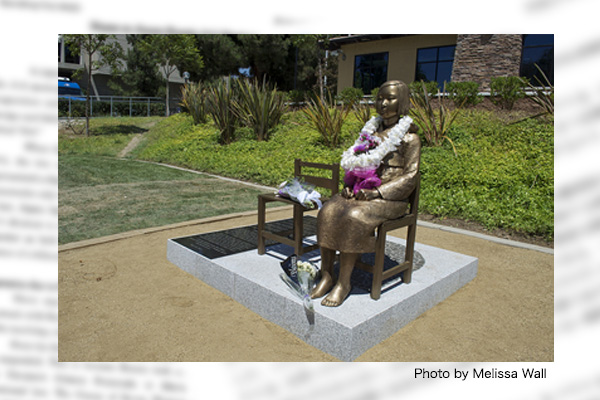On September 5, scholars and activists from Japan and South Korea who reject the theory of the coercive recruitment of comfort women as sex slaves held a joint symposium in Seoul. This was the first joint symposium held in South Korea from this particular position. Banners depicting large national flags of both countries were hung at the venue. At the opening ceremony, the Japanese national anthem "Kimigayo" was sung after the Korean national anthem. Among the audience of about 100 people dominated by Koreans, there were some who sang Kimigayo in a loud voice.
Prosecutors failed to present evidence of forceful recruitment
After congratulatory remarks by former Seoul National University Professor Lee Yong Hoon, Harvard University professor John Mark Ramseyer (via video), and Seishiro Sugihara, president of the International Institute of Controversial Histories, presentations were given by three Japanese (this author; Yumiko Yamamoto, director of the International Institute of Controversial Histories; and Kunitoshi Matsuki, senior researcher fellow at the institute) and three South Koreans (Lew Seok Choon, former Yonsei University Professor; Lee Woo Yeon, researcher at Naksungdae Institute of Economic Research; and Kim Byung Heon, Director of Korean History Textbook Research Institute).
It was noteworthy that Professor Lew Seok Choon, who was indicted by prosecutors in November 2020 for his alleged defamation of a living former comfort woman through his university lecture on comfort women, unveiled the following shocking fact.
According to Lew, prosecutors asked for a sentence of one year and six months in prison for him in November last year. In March this year, however, the presiding judge declared the trial "idle" without announcing the next trial date. There were two reasons for this: (1) the Supreme Court had yet to issue the final ruling on the case of Professor Park Yu Ha, which should be referred to as a similar case (pending at the top court for six years), and (2) prosecutors had not yet submitted the evidence of the coercive recruitment of comfort women that should be presented as a matter of course.
Lew submitted to the court a lot of Japanese and Korean materials that denies the coercive recruitment theory, including the Korean translations of books on comfort women written by me and historian Ikuhiko Hata. In contrast, prosecutors failed to present the evidence of the coercive recruitment. If prosecutors cannot provide the evidence, they should not have indicted Lew in the first place, and the court should immediately issue an acquittal. However, both prosecutors and the court, conceding to anti-Japanese sentiment in South Korean society, do not have the courage to face the truth.
Anti-Japanese forces colluding with North Korea
In my presentation to the symposium, I said as follows:
The comfort women issue was sparked by anti-Japanese forces within Japan such as the Asahi Shimbun newspaper and lawyer Kenichi Takagi, prompting two anti-Japanese groups in South Korea -- Chong Dae Hyup (Korean Council for the Women Drafted for Military Sexual Slavery) and an association of former comfort women and their families – to disseminate lies emanated from Japan within South Korea. South Korean newspapers and televisions widely reported the comfort women issue as if it were a second independence movement. What cannot be overlooked is that the fake-spreading groups in Japan and South Korea have been closely associated with North Korea. Symbolizing the connection, South Korean National Assembly lawmaker Yoon Mee Hyang, who was the head of the Korean Council for Justice and Remembrance (formerly Chong Dae Hyup) and its incumbent head Le Na Young attended a recent Tokyo event of a North Korean outpost in Japan.
Following discussions at the symposium, the participants held a rally beside a comfort woman statue in front of the Japanese Embassy the next day and published a joint statement. It says: truth-oriented Japanese and South Korean groups will work together to expose the conspiracies and maneuvers by Japanese, South Korean and North Korean fake-spreading groups and hold them responsible for the act; and to have comfort women statues, erected in South Korea and across the world to symbolize lies, removed.
Tsutomu Nishioka is a senior fellow and a Planning Committee member at the Japan Institute for National Fundamentals and a specially-appointed professor at Reitaku University. He covers South and North Koreas.


